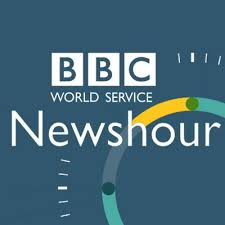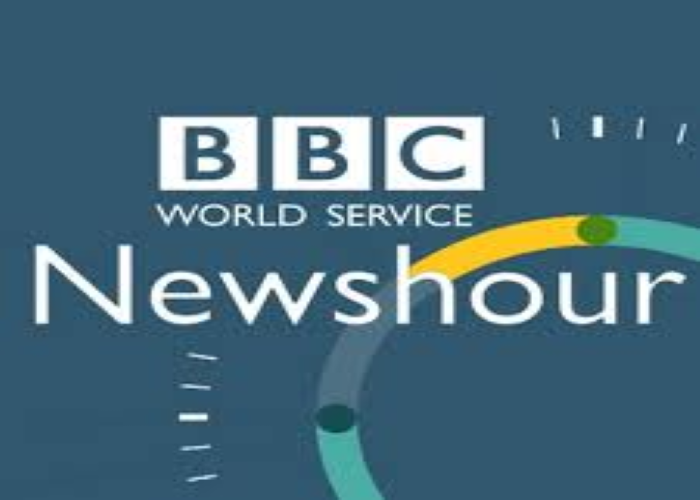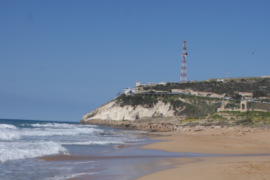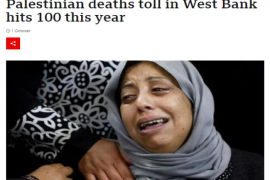Since news broke on October 22nd that Israel’s minister of defence had designated six Palestinian NGOs because of their links to the PFLP terrorist organisation, the BBC has demonstrated a remarkably uncurious approach to the topic.
Given that the story includes misappropriation of funding from European sources (with the European Anti-Fraud Office reportedly having already launched an investigation in August), one might have assumed that the BBC would have at least reported on the mechanisms allegedly employed. For example, terrorism financing expert Matthew Levitt of WINEP notes that an NGO that was designated before the six latest ones (notably with no media outcry) used a system of forged receipts:
“According to the Israeli indictment of Tisir Abu Sharbak, one of the four UHWC employees arrested in May 2021, the NGOs in question employed a variety of money laundering schemes to obfuscate their role as PFLP fronts. First, they forged documents and receipts to significantly inflate the cost of a given project as presented to donors. The difference from these inflated invoices would go to the PFLP. To facilitate this fraud, the NGOs negotiated deals with local businesses, which provided realistic-looking invoices the NGOs could use to pad their numbers. The NGOs would add 16 percent tax to these invoices, which they would pass on to the businesses for participating in the scheme. The NGOs also presented foreign donors forged invoices for purchases that were either never made at all or made for a fraction of the stated cost. In the words of one defendant, “There is real procurement and fictitious procurement in each project. Everyone knows what is real and what is fictitious with the aim of receiving the money from those who provide the funding.””
However the BBC has shown no interest in trying to find out whether similar methods were used by the six NGOs designated last month. Instead, its coverage of that story (see ‘related articles’ below) has focused on the uncritical amplification of talking points from interested parties, including the NGOs themselves and some of their international partners, thereby confirming the BBC’s place in a well-established echo-chamber.
Another item along the same lines was aired two weeks after the story broke in the November 4th afternoon edition of the BBC World Service radio programme ‘Newshour’. Presenter Razia Iqbal introduced the item (from 14:04 here) as follows: [emphasis in italics in the original, emphasis in bold added]
Iqbal: “To the Middle East now and late last month five [sic] Palestinian civil society organisations were branded by the Israelis as terrorist organisations. All groups receive foreign aid and the Israelis allege that they are diverting funds to a militant faction – the Popular Front for the Liberation of Palestine. International donors and human rights organisations expressed their outrage at the Israeli decision and it has also divided Israel’s ruling coalition. There are now reports suggesting the Israelis tried to persuade donors – including EU governments – to cut the funding but they were not persuaded to do so. We’ll hear from Israel in just a moment. First though let’s hear from the founder of one of the groups designated as a terrorist organisation, lawyer Raja Shehadeh. He helped set up Al Haq four decades ago.”
Given that he has been doing the rounds on this topic, the choice of relatively frequent BBC interviewee Raja Shehadeh for this item is hardly surprising. Neither is the unchallenging nature of the questions posed by Iqbal after his initial reminiscences on the founding of Al Haq in 1979, beginning with a previously seen talking point concerning that NGO’s supposed mission.
Iqbal: “And in your view, this is an organisation that has changed: it hasn’t just been looking at violations by the Israelis but also looking into the Palestinian Authority, monitoring violations when that was set up.”
Iqbal: “And you would say that that says what about this particular institution because it’s one that other human rights organisations with much bigger reputations internationally have turned to for documentation and for official data.”
Iqbal did not bother to inform listeners that Al Haq’s director general Shawan Jabarin sits on Human Rights Watch’s MENA advisory committee or that he was imprisoned for recruiting PFLP operatives in the past.
With no attempt made to question Shehadeh’s claim that the BDS supporting NGO Al Haq “was always very careful to avoid politics”, Iqbal went on:
Iqbal: “And now your reaction to the government declaring Al Haq and five other NGOs as terrorist organisations, which effectively outlaws them. What’s your response to that?”
Failing to challenge Shehadeh’s reply to that question, she simply repeated her request for his “response to those accusations”.
Shehadeh: “Well absolutely preposterous because Al Haq is not a coverup for any organisation. It’s an organisation that is a genuine human rights organisation that is doing very important legal work and Israel is not happy to have its dirty actions exposed and so it’s only natural for Israel, which is a violator of human rights, to say that the organisation that exposed these human rights is a terrorist organisation and by saying terrorist, they just try to stop anybody from dealing with the organisation and violation of the law – Israeli law – to be with the organisation or to lend to support to it.”
Iqbal refrained from questioning those allegations from Shehadeh or even to ask why, if the reason for last month’s designation is as he claims, no such designation was announced in the last 42 years. Rather, she laboured the point further.
Iqbal: “Well the implications are more than just people dealing with Al Haq. What is likely to be the impact of this designation?”
Shehadeh: “Well the impact is likely to be that the organisation is closed with us and all the people involved in it arrested and detained and actually the charge is very serious charge that can end up in life imprisonment for terrorist activities.”
Iqbal closed her talking point promoting interview with “lawyer and writer Raja Shehadeh” at that point, clearly having failed to display even basic journalistic curiosity regarding Al Haq’s known PFLP links.
After informing listeners that the programme had unsuccessfully approached two Israeli government ministries for an interview, she read out a statement from the Israeli Security Agency and then (from 19:24) introduced another interviewee – Professor Gerald Steinberg of NGO Monitor – who was given a much shorter time slot than Shehadeh.
In response to Iqbal’s first question – “what evidence exists linking these NGOs with terror groups?” – Professor Steinberg clarified that he does not represent the Israeli government and therefore cannot say what information it has. He noted that there is publicly available information showing that at least 70 individuals in the NGO network are simultaneously identified with the PFLP. Iqbal interrupted him at that point, preferring to promote another talking point at the expense of information that may have helped listeners actually understand the story.
Iqbal: “OK…OK…let me…let me put to you what human rights – international human rights organisations – are saying. When the Israelis designated these organisations as terrorist groups, they have basically said that this is wrong, that it should not be, it’s an appalling and unjust decision, describing it as an attack by the Israeli government on the international human rights movement.”
There is of course nothing to prevent any organisation from self-defining as a ‘human rights group’ and Razia Iqbal was clearly more intent on amplifying the BBC’s chosen talking points than examination of a broader and very serious issue identified by Matthew Levitt in his paper.
“The NGOs discussed in this paper clearly do engage in civil society work and have partnered with the United Nations and human rights organizations for such work. But the Israeli charges have not come out of thin air. Between findings from intelligence surveillance, seized documents and computers, and detainee interrogations, Israeli authorities appear to have compiled compelling evidence to underpin these designations. Much of this evidence has been shared with allies— both before and since the designations—so it will be telling to see how governments react. If even parts of the evidence are as strong as the Israelis suggest, then something far more troubling than just financial fraud is at hand—this would strike at the very heart of what it is to work in the field of human rights.”
To date, the BBC has shown no interest whatsoever in exploring that side of this story. Instead, in all its coverage so far it has prioritised a politically motivated narrative that detracts from audience understanding of the story and its wider potential implications.
Related Articles:
REVIEWING BBC PROMOTION OF PFLP LINKED NGOS
BBC RADIO 4 NEWS BULLETIN FRAMING OF PFLP LINKED NGO DESIGNATIONS
BBC’S KNELL UNCRITICALLY AMPLIFIES PFLP LINKED NGOS’ TALKING POINTS






Yawn – Just another boring BBC lackey pushing anti-Israel narratives – without the slightest attempt to examine the truth of the issue.